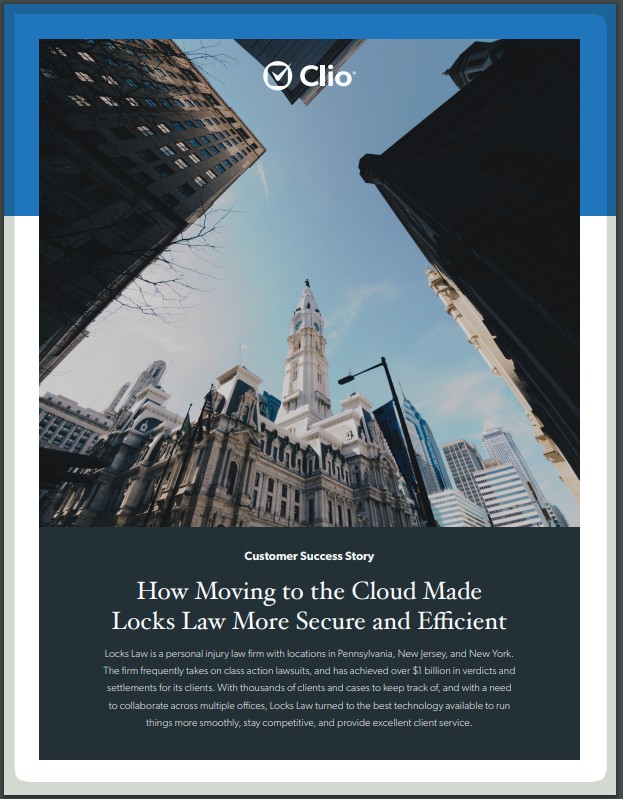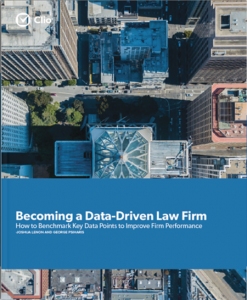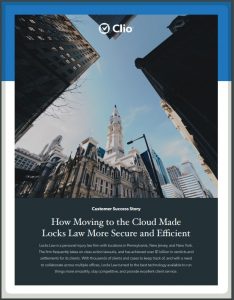
Former Maricopa County Sheriff Joe Arpaio (Photo by John Moore/Getty Images)
After the election and before he (or someday, she) assumes the office, a President is required by the Constitution to take the following oath:
I do solemnly swear that I will faithfully execute the office of President of the United States and will to the best of my ability, preserve, protect and defend the Constitution of the United States.
Article II, Section I, United States Constitution.
Arguably, Donald Trump violated this oath, at least in spirit, on the day he pardoned former Maricopa County Sheriff Joe Arpaio.
On December 23, 2011, District Court Judge G. Murray Snow issued an order in Melendres v. Arpaio, (07-cv-02513-GMS, Dist. of Arizona) against Sheriff Joe Arpaio and the Maricopa County Sheriff’s Office (“MCSO”) which specified that:
MCSO and all of its officers are hereby enjoined from detaining any person based only on knowledge or reasonable belief, without more, that the person is unlawfully present within the United States, because as a matter of law such knowledge does not amount to reasonable belief that the person either violated or conspired to violate the Arizona smuggling statute, or any other state or federal law.
Judge Snow issued this order after finding that Sheriff Arpaio, through his own actions and by directing the actions taken by his staff, repeatedly violated the Fourth Amendment rights of Latinos during traffic stops in Maricopa County. See, USA v. Joseph M. Arpaio, Findings of Fact and Conclusions of Law, CR-16-01012-001-PHX-SRB, Dist. of Arizona, Susan R. Bolton, U. S. D. J. at 2, 14 (“Bolton Decision”).
After Judge Snow enjoined Arpaio and the MCSO from further action, the illegal stops continued, under Arpaio’s express direction, and Judge Snow ultimately referred Arpaio for an investigation of Criminal Contempt of court for violating the December 2011 order. Id. That investigation led the Arizona District Court to issue an Order to Show Cause on October 25, 2016, summoning Arpaio to trial for Criminal Contempt pursuant to Federal Rule of Criminal Procedure 42. Arpaio was tried for Criminal Contempt by Judge Bolton, who found him guilty of the charge and issued a written decision on July 31, 2017. See Bolton Decision, supra. Judge Bolton specifically found, beyond a reasonable doubt, that:
The evidence shows a flagrant disregard for Judge Snow’s order. Credible testimony shows that Defendant knew of the order and what the order meant in regards to the MCSO’s policy of detaining persons who did not have state charges for turnover to ICE for civil immigration violations. Despite this knowledge, Defendant broadcast to the world and to his subordinates that he would and they should continue “what he had always been doing.”
. . . Defendant willfully violated the order by failing to do anything to ensure his subordinates’ compliance and by directing them to continue to detain persons for whom no criminal charges could be filed.
Id. at 13-14.
By the time he was convicted of Criminal Contempt in October 2016, two Federal District Court Judges had found that Arpaio’s actions, resulting in the detention of countless Latinos in Arizona after car stops, were a clear violation of the rights of those individuals as guaranteed by the Fourth Amendment of the Constitution. Arpaio was scheduled to be sentenced on October 5, 2017. He has not yet appealed his conviction.
At a political rally in Phoenix on August 23, 2017, Trump teased the idea of pardoning the recently convicted Arpaio by making the following statements:
By the way, I’m just curious: Do the people in this room like Sheriff Joe?
So was Sheriff Joe convicted for doing his job? That’s what—he should have had a jury, but you know what? I’ll make a prediction: I think he’s going to be just fine. Okay? But I won’t do it tonight, because I don’t want to cause any controversy. Is that okay? All right?
But Sheriff Joe can feel good. ”
Trump was already telling us that he thought that not one, but two Federal District Court Judges interpreted the law incorrectly and that Arpaio was right to continue violating the civil rights of Latinos in Arizona because he was just “doing his job.” Two days later, while a catastrophic hurricane made landfall in Texas, on August 25, 2017, Trump backed up his sentiment and pardoned Arpaio in a brief statement issued by the White House:
Throughout his time as sheriff, Arpaio continued his life’s work of protecting the public from the scourges of crime and illegal immigration. Sheriff Joe Arpaio is now 85 years old, and after more than 50 years of admirable service to our nation, he is (a) worthy candidate for a Presidential pardon.
It was at that moment that Trump made it crystal clear to the American public, if he had not already more clearly done so before then, that he would not uphold his oath to “preserve, protect and defend” the Constitution. By pardoning Arpaio, before he was sentenced and before he had exhausted his right to appeal his conviction, Trump substituted his own judgment for that of the judiciary. Trump has essentially told the citizens of this country that his interpretation of Arpaio’s actions outweighs the authority of the judiciary to interpret the Constitution. Anyone with a rudimentary understanding of civics must know that this is simply wrong — Trump’s authority as the head of the executive branch is only to enforce the law. The judiciary is granted the authority to interpret it, not the President. This particular use of his Presidential authority to pardon is, for this reason, abusive. It is also, at least in this author’s opinion, a blatant use of legal authority to allow unlawful action to go unchecked and likely continue because it condones what two courts have determined is a violation of individual civil rights that our Constitution is meant to protect.
Simply because you have the authority to do something does not mean that you have an unlimited right to use that authority, especially if you do so to support or commit unlawful action. Imagine this scenario, which I admit is hyperbolic for effect. The law does not prohibit me from possessing or using a scissor. I can use it in any manner that I see fit: to cut paper, to open an envelope, to pry out a staple, to hammer in a nail, to carve my initials in my desk. I cannot use that scissor, which I have an unquestionable right to possess, to stab someone in the chest. Once I do that, my otherwise lawful possession and use of a scissor becomes a crime. While perhaps not a crime per se, Trump’s use of his pardon power to give Arpaio a pass is an abusive and perhaps unlawful sanction of Arpaio’s efforts to violate people’s rights, rather than a lawful means to forgive an individual for a past wrong for which he has shown remorse (Arpaio is anything but remorseful).
Although virtually every legal scholar who has commented on the Arpaio pardon agrees that the President has an unrestricted Constitutional right to grant clemency for federal crimes, there is a good reason why the Department of Justice has an Office of the Pardon Attorney (OPA). See also, Article II, section 2, United States Constitution, 28 CFR §§ 1. 1 thru 1. 11. OPA oversees an extensive application process for those seeking a pardon or a commutation of sentence from the President and makes recommendations to the President based on the information it gathers through the application process and its investigation of applicants. Even though the OPA has no power to stop the President from using his clemency authority, this process was set up to make sure that the authority is used consistent with the obligations of the oath of office and in the spirit of that oath. Additionally, nearly all pardons are generally only considered after an individual has been sentenced, there has been some rehabilitation for the offense and an expression of remorse.
Because the issue of an applicant’s post-conviction rehabilitation is central to the consideration of a pardon request, the pardon application is designed to elicit the broad range of information required to allow the President to make an informed judgment of the applicant’s suitability for pardon.
Id.
In fact, the instructions under “Reasons for seeking pardon” in the pardon application specifically tell applicants:
. . . you should bear in mind that a presidential pardon is ordinarily a sign of forgiveness and is granted in recognition of the applicant’s acceptance of responsibility for the crime and established good conduct for a significant period of time after conviction or release from confinement. A pardon is not a sign of vindication and does not connote or establish innocence. For that reason, when considering the merits of a pardon petition, pardon officials take into account the petitioner’s acceptance of responsibility, remorse, and atonement for the offense.
(emphasis added).
Trump’s pardon of Arpaio, and the rhetoric that accompanied it, suggest something very different. Rather than an expression of forgiveness and a show of mercy to an elderly man who has faithfully served the people, Trump’s pardon of Arpaio is political message to his supporters and to those in the judiciary who dare to defy him, that he will do as he sees fit to further his own political objectives. The message that Arpaio’s pardon sends to the bar and the judiciary is that the work that we do and the oaths that we take are essentially meaningless. In New York, I took this oath:
I do solemnly swear (or affirm) that I will support the constitution of the United States, and the constitution of the State of New York, and that I will faithfully discharge the duties of the office of [attorney and counselor-at-law], according to the best of my ability.
Section 1 of Article XIII of the New York State Constitution
When Trump pardons someone to circumvent the judicial process, it trivializes the work that I, everyone at our firm, and all other attorneys do when we use the courts and turn to the judiciary to adjudicate legal disputes and protect the legal rights of our clients, whether it be to enforce rights under a contract, the right to free speech, the right to be free from discrimination in employment, the right to be free from an unlawful search and seizure or any other right granted by the laws of this country and our local jurisdictions.
Trump has taken it upon himself to set aside the judicial process whenever he sees fit to do so if he disagrees with the result it produces. Since his clemency power as President is absolute and will likely go unchecked, he could even potentially use it to pardon members of his administration and his campaign staff for all crimes they may have committed (the way Ford did for Nixon). This could stall the Russia collusion investigation because those who have been pardoned would have no reason to cooperate with the Special Prosecutor without any threat of possible prosecution. It would be the ultimate means of obstructing justice — a virtual scissor in the heart of the Special Prosecutor. Then what? The Supreme Court, in describing and affirming the broad clemency power of the President, also warned that it may yet have its limits.
If it be said that the President by successive pardons of constantly recurring contempts in particular litigation might deprive a court of power to enforce its orders in a recalcitrant neighborhood, it is enough to observe that such a course is so improbable as to furnish but little basis for argument. Exceptional cases like this if to be imagined at all would suggest a resort to impeachment rather than to a narrow and strained construction of the general powers of the President.
Ex parte Grossman, 267 U. S. 87, 121, 45 S. Ct. 332, 337, 69 L. Ed. 527 (1925) (emphasis added)
So, if Trump does try to use his clemency power to obstruct justice, perhaps we can finally check him?
This is just one litigator’s opinion.
 Christine A. Rodriguez is of counsel to the firm Balestriere Fariello and successfully represents individuals and small businesses in all manner of employment discrimination, civil rights, criminal defense, civil litigation and commercial litigation matters. She also advises small businesses on all aspects of legal matters from contract to employee issues. You can reach her by email at christine. a. rodriguez@balestrierefariello. com.
Christine A. Rodriguez is of counsel to the firm Balestriere Fariello and successfully represents individuals and small businesses in all manner of employment discrimination, civil rights, criminal defense, civil litigation and commercial litigation matters. She also advises small businesses on all aspects of legal matters from contract to employee issues. You can reach her by email at christine. a. rodriguez@balestrierefariello. com.















 Get a better starting point with attorney created legal documents, checklists, guides and more. »
Get a better starting point with attorney created legal documents, checklists, guides and more. » Gain a clear strategic advantage with the fastest answers and most valuable insights. »
Gain a clear strategic advantage with the fastest answers and most valuable insights. » Simplify your matter management, client communication and financial reporting in one seamless tool. »
Simplify your matter management, client communication and financial reporting in one seamless tool. »